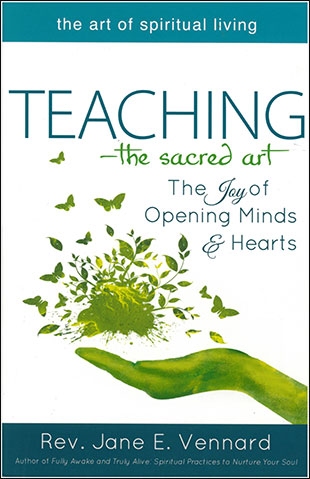"Wisdom seems to defy description, but we tend to know it when we see or hear it. We are acutely aware of the wisdom and the accompanying humility we experience in others. Being in their presence often gives rise to the longing to possess such wisdom for ourselves, and we begin to search for it, always believing wisdom lies somewhere beyond us. Poet Mark Nepo describes the outcome of his search: 'I wanted to become wise, but after much travel and study, it was during my bedridden days with cancer that I realized I was already wise. I just didn't know the language of my wisdom.'
"I don't think that Nepo is referring to words when he writes of the 'language of wisdom.' I believe he is implying that one's wisdom is not expressed through words but rather through the language of being. Who he is and how he lives are the expression of his wisdom. Therefore, we cannot find wisdom beyond ourselves or teach another how to be wise, but we can create the space for our wisdom and the wisdom of others to be revealed.
"In the Zen Buddhist tradition it is believed that teachers cannot teach their students how to wake up; they can only provide the wings of awakening. I imagine this beautiful phrase applies to wisdom as well as awakening. In fact, I think these words are synonymous. As teachers, we need to recognize that teaching the wings of awakening is what the sacred art of teaching is all about. No matter what our subject matter, the age of our students, or the number of students we are responsible for, we are offering them all the wings of awareness."
